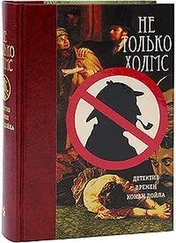"The Winds," he said mechanically.
He looked at another—a sketch of the Princess Naïa. And somehow it made him think of vast skies and endless plains and the tumult of surging men and rattling lances.
"A Cossack," he said, half to himself. "I never before realised it." And he laid it aside and turned to the next.
"I haven't brought any life studies or school drawings," she said. "I thought I'd just show you the—the results of them and of—of whatever is in me."
"I'm just beginning to understand what is in you," he said.
"Tell me—what is it?" she asked, almost timidly.
"Tell you ?" He rose, stood by the window looking out, then turned to her:
"What can I tell you?" he added with a short laugh. "What have I to say to a girl who can do— these —after two years abroad?"
Sheer happiness kept her silent. She had not dared hope for such approval. Even now she dared not permit herself to accept it.
"I have so much to say," she ventured, "and such an appalling amount of work before I can learn to say it―"
"Your work is—stunning!" he said bluntly.
"You don't think so!" she exclaimed incredulously.
"Indeed I do! Look at what you have done in two years. Yes, grant all your aptitude and talents, just look what you've accomplished and where you are ! Look at you yourself, too—what a stunning, bewildering sort of girl you've developed into!"
"Jim Neeland!"
"Certainly, Jim Neeland, of Neeland's Mills, who has had years more study than you have, more years of advantage, and who now is an illustrator without anything in particular to distinguish him from the several thousand other American illustrators―"
"Jim! Your work is charming!"
"How do you know?"
"Because I have everything you ever did! I sent for the magazines and cut them out; and they are in my scrapbook―"
She hesitated, breathless, smiling back at him out of her beautiful golden–grey eyes as though challenging him to doubt her loyalty or her belief in him.
It was rather curious, too, for the girl was unusually intelligent and discriminating; and Neeland's work was very, very commonplace.
His face had become rather sober, but the smile still lurked on his lips.
"Rue," he said, "you are wonderfully kind. But I'm afraid I know about my work. I can draw pretty well, according to school standards; and I approach pretty nearly the same standards in painting. Probably that is why I became an instructor at the Art League. But, so far, I haven't done anything better than what is called 'acceptable.'"
"I don't agree with you," she said warmly.
"It's very kind of you not to." He laughed and walked to the window again, and stood there looking out across the sunny garden. "Of course," he added over his shoulder, "I expect to get along all right. Mediocrity has the best of chances, you know."
"You are not mediocre!"
"No, I don't think I am. But my work is. And, do you know," he continued thoughtfully, "that is very often the case with a man who is better equipped to act than to tell with pen or pencil how others act. I'm beginning to be afraid that I'm that sort, because I'm afraid that I get more enjoyment out of doing things than in explaining with pencil and paint how they are done."
But Rue Carew, seated on the arm of her chair, slowly shook her head:
"I don't think that those are the only alternatives; do you?"
"What other is there?"
She said, a little shyly:
"I think it is all right to do things if you like; make exact pictures of how things are done if you choose; but it seems to me that if one really has anything to say, one should show in one's pictures how things might be or ought to be. Don't you?"
He seemed surprised and interested in her logic, and she took courage to speak again in her pretty, deprecating way:
"If the function of painting and literature is to reflect reality, a mirror would do as well, wouldn't it? But to reflect what might be or what ought to be requires something more, doesn't it?"
"Imagination. Yes."
"A mind, anyway…. That is what I have thought; but I'm not at all sure I am right."
"I don't know. The mind ought to be a mirror reflecting only the essentials of reality."
"And that requires imagination, doesn't it?" she asked. "You see you have put it much better than I have."
"Have I?" he returned, smiling. "After a while you'll persuade me that I possess your imagination, Rue. But I don't."
"You do, Jim―"
"I'm sorry; I don't. You construct, I copy; you create, I ring changes on what already is; you dissect, I skate over the surface of things—Oh, Lord! I don't know what's lacking in me!" he added with gay pretence of despair which possibly was less feigned than real. "But I know this, Rue Carew! I'd rather experience something interesting than make a picture of it. And I suppose that confession is fatal."
"Why, Jim?"
"Because with me the pleasures of reality are substituted for the pleasures of imagination. Not that I don't like to draw and paint. But my ambition in painting is and always has been bounded by the visible. And, although that does not prevent me from appreciation—from understanding and admiring your work, for example—it sets an impregnable limit to any such aspiration on my part―"
His mobile and youthful features had become very grave; he stood a moment with lowered head as though what he was thinking of depressed him; then the quick smile came into his face and cleared it, and he said gaily:
"I'm an artistic Dobbin ; a reliable, respectable sort of Fido on whom editors can depend; that's all. Don't feel sorry for me," he added, laughing; "my work will be very much in demand."
The Princess Mistchenka came leisurely and gracefully downstairs a little before eight that evening, much pleased with her hair, complexion, and gown.
She found Neeland alone in the music–room, standing in the attitude of the conventional Englishman with his back to the fireless grate and his hands clasped loosely behind him, waiting to be led out and fed.
The direct glance of undisguised admiration with which he greeted the Princess Naïa confirmed the impression she herself had received from her mirror, and brought an additional dash of colour into her delicate brunette face.
"Is there any doubt that you are quite the prettiest objet d'art in Paris?" he enquired anxiously, taking her hand; and her dark eyes were very friendly as he saluted her finger–tips with the reverent and slightly exaggerated appreciation of a connoisseur in sculpture.
"You hopeless Irishman," she laughed. "It's fortunate for women that you're never serious, even with yourself."
"Princess Naïa," he remonstrated, "can nothing short of kissing you convince you of my sincerity and―"
"Impudence?" she interrupted smilingly. "Oh, yes, I'm convinced, James, that, lacking other material, you'd make love to a hitching post."
His hurt expression and protesting gesture appealed to the universe against misinterpretation, but the Princess Mistchenka laughed again unfeelingly, and seated herself at the piano.
"Some day," she said, striking a lively chord or two, "I hope you'll catch it, young man. You're altogether too free and easy with your feminine friends…. What do you think of Rue Carew?"
"An astounding and enchanting transformation. I haven't yet recovered my breath."
"When you do, you'll talk nonsense to the child, I suppose."
"Princess! Have I ever―"
"You talk little else, dear friend, when God sends a pretty fool to listen!" She looked up at him from the keyboard over which her hands were nervously wandering. "I ought to know," she said; " I also have listened." She laughed carelessly, but her glance lingered for an instant on his face, and her mirth did not sound quite spontaneous to either of them.
Читать дальше












